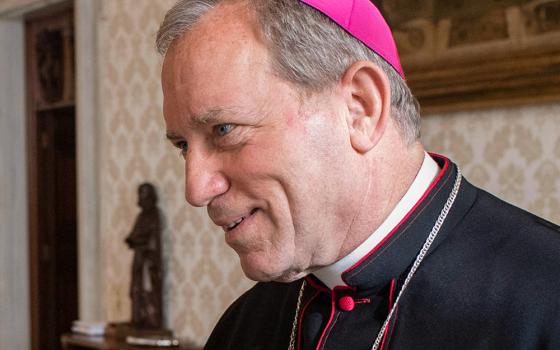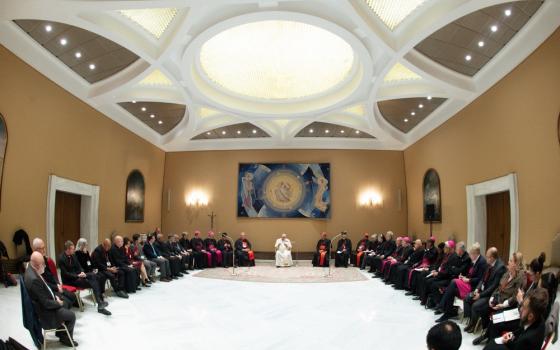Inaugural speeches are among the toughest speeches to write. The nature of the event itself requires that the President seek to transcend partisanship, a nature that was reinforced by the first great inaugural address, Thomas Jefferson’s famous “We are all federalists. We are all Republicans.” Our politics today are as divided as those that faced Jefferson, and so there is always something a little off-key about appeals to non-partisanship, and, unlike Jefferson, such appeals now lack the appearance of novelty.
Indeed, efforts to characterize the moment of an inauguration as transcending politics often fall flat or worse. In President Obama’s first inaugural address, he said that his election represented the fact that the American people had chosen “hope over fear.” I thought at the time: “No they didn’t. They chose Obama over McCain.” Put differently, they chose one set of hopes and fears over a different set of hopes and fears.
There have, since Jefferson, been only two truly great inaugural addressed, Lincoln’s second and Franklin Delano Roosevelt’s first. Both were great because the times demanded greatness. Lincoln’s second inaugural, delivered with the end of the Civil War in sight, remains the best speech ever delivered by an American at any time and in any circumstance. It stated our nation’s essential creeds, acknowledged the horror through which we were still passing, and pointed towards the healing the nation required, all is prose so exquisite, so poignant, that it remains alone atop the heap of great American oratory.
Roosevelt faced a different kind of crisis when he took the oath of office in March 1933, the last presidential inauguration in March. Most remember the most famous line from that speech – “The only thing we have to fear, is fear itself” – but towards the end, FDR hit the notes that best captured the moment in which he spoke about the significance of his election in a way that revealed his profound understanding of his office and of the needs of presidential leadership at that moment:
“We do not distrust the future of essential democracy. The people of the United States have not failed. In their need they have registered a mandate that they want direct, vigorous action. They have asked for discipline and direction under leadership. They have made me the present instrument of their wishes. In the spirit of the gift I take it.”
I cannot think of a single paragraph that better explains the relationship of governed and governors at a time of crisis.
Many would place John F. Kennedy’s inaugural address in the top tier and, as an exercise in rhetorical power it belongs there. But, it turns out that the rhetoric outstripped the reality. It turned out that we Americans would not “pay any price, bear any burden” to assure the survival of democracy throughout the world. And, thank God for that. We did not go to war over Berlin or Cuba. When we did decide to pay a heavy price in Vietnam, we went astray. Kennedy’s speech had the strength to enlist the American people and make them aware of the need for their contributions and sacrifices, indeed it did so in such a way that sounds almost quaint in our more libertarian age. But, the speech was not, as it was for FDR, the roadmap the nation needed.
So, then, what should Obama say? It is critical that he avoid the self-importance of the moment. Also critical that he avoid, and I doubt he will, his detatched, professorial, and occasionally soaring rhetoric. Four years, this man who had transcended the nation’s racial history could plausibly promise he would be the kind of transformational figure capable of transforming our partisan and ideological divides. Those hopes have not come to fruition and it would be self-deception for the President to suggest otherwise.
If I were the President’s speechwriter, I would suggest a short, concise and even pedestrian speech organized around the theme “Let’s get to work.” We have been through a tough four years as a nation as the consequences of the economic meltdown in 2008 proved uglier and deeper than anticipated. But, the economy is moving in the right direction, a fact voters recognized and confirmed in re-electing Mr. Obama. He should call on investors to get to work by investing in American companies and American jobs. He should call on workers to acquire the skills they need for the jobs in emerging technologies. He should call on the Congress to get to work and complete the business of setting the nation’s finances on a stable foundation. He should call on leaders of both parties to help forge a foreign policy consensus to regulate and direct the nation’s role in the world. He should evoke a vision of America in which workers make a living wage, have health care and a secure retirement because otherwise government will have failed in its essential, and related, tasks of ensuring the nation’s domestic tranquility and promoting the general welfare. He should point to the obvious and incontrovertible need to do something about global climate change, an issue that will require work from Congress, from industry and from the Academy, and changes and even sacrifices from the American people.
Then, assuring the American people that he will not rest until the work is in hand, mindful in all humility that it will never be fully accomplished, he should sit down. Obama is a great speech giver, but America needs to see his workmanlike side at this moment. A short, concise speech would do more for his image than a long and loquacious discourse.




